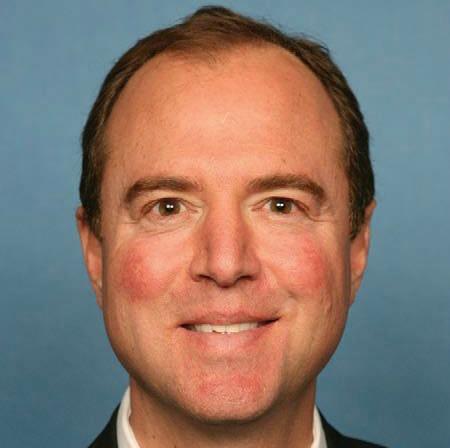BROOKE GLADSTONE: In this part of our show, the tug of war between cyber safety and privacy. We’ll start on Capitol Hill. Last Thursday the House passed the Cyber Intelligence Sharing and Protection Act, also known as CISPA. The bill aims to help government investigate cyber threats, both to national security and to private enterprise. How it works is CISPA encourages government agencies and tech companies to exchange information about users’ online activities by shielding those tech companies from legal liability.
Now, civil liberties advocates contend that the bill fails to define what exactly constitutes a cyber threat, and that it places too few limits on how the government can use the information it gleans. Noting these concerns, the President has threatened to veto the bill. Representative Adam Schiff, a California Democrat, was for the bill before he was against it. He supported its introduction to protect against the theft or misuse of information, but voted against it when he was unable to ensure that certain privacy protections were put in place.
ADAM SCHIFF: I offered an amendment that would have required the amount of personal information that is caught up in the cyber security information sharing is minimized, that the least degree possible we include personal, identifiable information. That amendment was not agreed to. It was not even allowed to get a vote on the floor.
BROOKE GLADSTONE: And you also asked for some other changes.
ADAM SCHIFF: Yes. I think that the Department of Homeland Security really needs to be the lead and point agency. We’re talking about the sharing of domestic information. And while the NSA would be much more efficient, you know, the NSA, to some degree, is in the electronic surveillance business, and we need them to be, and they’re very good at it. But they are not the agency most Americans think of when they think of privacy.
And I would add one other thing on this, Brooke, and that is one of the concerns that has been raised about the current legislation is that private companies can be having independent relationships with members of the intelligence community, giving and taking information, and unless there is a central clearinghouse for that, which I think should be DHS, then it becomes much more difficult for Congress to oversee the process.
BROOKE GLADSTONE: What about the complaint that the bill fails to define what constitutes a cyber threat? Did you address that in any of your proposed changes, and did any of them play out in the bill?
ADAM SCHIFF: Yes, I did, and no, they didn’t. [LAUGHS] I did address it in amendments that I offered, narrowing the information that would be determined to be cyber information. Again, they were not allowed to have a vote on the House floor.
Similarly, I offered an amendment that would basically spell out what the government can do with this information that it receives. We want it, obviously, to be used for cyber defense but we don’t want it as a fishing expedition and we don’t want the government using it as a stocking horse to do other things.
BROOKE GLADSTONE: What kind of abuse is the President and are you concerned about?
ADAM SCHIFF: You can have a situation where two companies conspire with each other to raise prices in an antitrust fashion or share information in a way that doesn’t protect the identities of their customers, and their customers’ identities are stolen, and then have the companies make the defense that no, they have immunity under the cyber statute.
BROOKE GLADSTONE: Joseph Lieberman, Susan Collins, Dianne Feinstein and Jay Rockefeller have introduced an alternate bill in the Senate. Does this bill offer the protections that you wanted the House bill to offer?
ADAM SCHIFF: It won’t go as far as I would like it to go. That’s the unfortunate nature of compromise in our system. But hopefully, it will be a good enough work product where we can balance both goals of protecting the country from this ongoing cyber threat and damage that we’re sustaining and, at the same time, maintain our privacy interests so the American people are confident that their personal information isn’t going to be misused or sacrificed without any benefit to the national security.
BROOKE GLADSTONE: Congressman, thank you very much.
ADAM SCHIFF: Thank you.
BROOKE GLADSTONE: Adam Schiff is a congressman for California’s 29th District.
